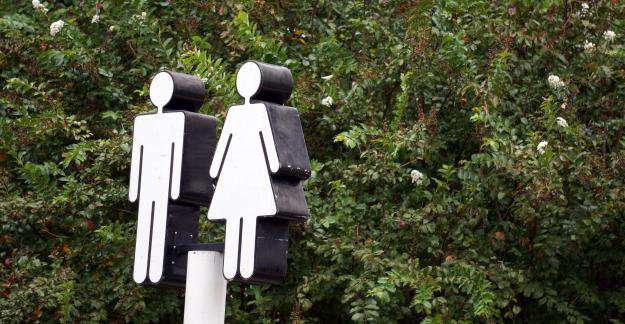Super Bowl's Super Flush: Just a Super Myth? While some say the halftime "super flush" of toilets on Super Bowl Sunday is a myth, UA research scientist Jean McLain says anecdotal evidence indicates that it happens — and that wastewater treatment plants are prepared to handle such a surge.
By Faith Schwartz, UA College of Agriculture and Life Sciences Cooperative Extension
A pervasive anecdote is that, come Super Bowl halftime, millions of people watching the big game will head to the bathroom to simultaneously flush their toilets.
Some say it's an urban legend. But is it?
"I have never seen the 'Super Bowl super flush event' in writing, and I've never seen it mentioned in a peer-reviewed publication," said University of Arizona research scientist Jean McLain.
But there is some truth to the myth.
"Word-of-mouth and anecdotally, yes, I've heard it repeated," said McLain, also associate director of the Water Resources Research Center, a Cooperative Extension unit of the UA College of Agriculture and Life Sciences.
McLain once toured a municipal wastewater treatment plant and inquired about how the plant operators calculate their high-flow capacity.
"They told me that the highest flow of the whole year is during halftime of the Super Bowl," she said. "That struck me as really funny."
McLain said treatment plant operators prepare for peak cycles. And, as a microbiologist whose research focuses on recycled wastewater, one of McLain's primary concerns is making sure that water is safe and sustainable for the public and the environment.
"We do so much water recycling here in Arizona, the wastewater treatment plants are designed to handle a super flush," she said. "The flush gets treated, and the water recycles back into the water supply. Recycled wastewater is usually returning to the environment in some capacity — groundwater recharge or to sustain wetlands and riparian areas — and we want to make absolutely certain that the water is microbiologically safe."
The Water Resources Research Center serves as a repository for water information for Arizona and the surrounding region, providing water management information to elected officials, towns, cities and the general public.
"We also have boots on the ground," McLain said. "We get out there to the community to interact with different water advocacy groups, as well as researchers, farmers — we are always traveling somewhere to speak to people face to face."
UA research scientist Jean McLain is a water quality expert who last year was invited to Capitol Hill to testify before a presidential advisory committee looking at antibiotic resistance. Her testimony covered antibiotic resistance in relation to agriculture and water sustainability.

mike_b_nimble on February 8th, 2021 at 00:04 UTC »
In England the UK the power companies have to pay close attention to major soccer matches, because everyone turns on an electric kettle after the game and they have to be ready for the demand.
probenation on February 7th, 2021 at 23:04 UTC »
In order to ease the burden of our overworked sewage system, I will use my cat’s litter box at halftime, instead.
Sardine_Sandwich on February 7th, 2021 at 22:35 UTC »
I've been working at a Water Treatment Plant for 24 years in a very large city, we have to boost the water pressure by starting up trim pumps at halftime to keep up with the outgoing water flow from folks flushing, then we trim back the pressure by cutting off those trim pumps after halftime.